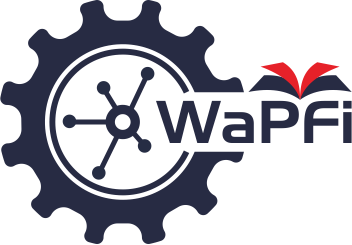Bibliometric analysis and trends in the development of digital audio modules: 2017-2024 in 21st century education
Abstract
This study aims to analyze developments and trends in the development of digital audio modules in the context of 21st century education from 2017 to 2024. The study focuses on identifying research patterns, keyword trends, country contributions and key affiliations in this field. Bibliometric methods were applied using Bibliometrix tools and Biblioshiny software to analyze citation patterns, author collaborations, and keyword occurrences, providing insights into research trends and networks. The data for this analysis was sourced from the Scopus database, ensuring comprehensive coverage of relevant scientific publications.The results showed a significant increase in the number of publications from 2017 to 2022, with a peak of 50 publications in 2022. However, there was a drastic decline in 2023, reaching 24 publications. Globally, China dominates research in the field of digital audio modules with a contribution of 32%, followed by India (19%) and the United States (16%). Victoria University is the highest contributing institution, while ACM International Conference Proceeding Series is the most prolific source of publications.The most prevalent keywords included “audio acoustics” (20.54%), “digital storage” (14.29%), and “digital signal processing” (12.05%), indicating the main focus in this study. The conclusion of this study emphasizes the importance of interdisciplinary collaboration and the need for further research into the application of audio technology in education, including its integration with artificial intelligence and the Internet of Things to address 21st century learning needs.
Downloads
References
A. (2024, May). Bibliometric analysis related to culture-based physics learning to improve critical thinking ability. In AIP Conference Proceedings (Vol. 3116, No. 1). AIP Publishing.
Antons, D., Kleer, R., & Salge, T. O. (2016). Mapping the topic landscape of JPIM, 1984–2013: In search of hidden structures and development trajectories. Journal of Product Innovation Management, 33(6), 726-749.
Ariani, D. N., Sumantri, M. S., & Wibowo, F. C. (2022). The impact of Android module-based inquiry flipped classroom learning on mathematics problem solving and creative thinking ability. International Journal of Interactive Mobile Technologies, 16(24).
Awan, U., Sroufe, R., & Shahbaz, M. (2021). Industry 4.0 and the circular economy: A literature review and recommendations for future research. Business Strategy and the Environment, 30(4), 2038- 2060.
Brøvig, R., & Danielsen, A. (2016). Digital signatures: The impact of digitization on popular music sound. MIT Press.
Darman, D. R., Suhandi, A., Kaniawati, I., Samsudin, A., & Wibowo, F. C. (2024). Development and Validation of Scientific Inquiry Literacy Instrument (SILI) Using Rasch Measurement Model. Education Sciences, 14(3), 322.
Downie, S., Gao, X., Bedford, S., Bell, K., & Kuit, T. (2021). Technology enhanced learning environments in higher education: A cross-discipline study on teacher and student perceptions. Journal of University Teaching and Learning Practice, 18(4).
Farooq, R. (2024). A review of knowledge management research in the past three decades: A bibliometric analysis. VINE Journal of Information and Knowledge Management Systems, 54(2), 339-378.
Forliano, C., De Bernardi, P., & Yahiaoui, D. (2021). Entrepreneurial universities: A bibliometric analysis within the business and management domains. Technological Forecasting and Social Change, 165, 120522.
Hillmayr, D., Ziernwald, L., Reinhold, F., Hofer, S. I., & Reiss, K. M. (2020). The potential of digital tools to enhance mathematics and science learning in secondary schools: A context-specific meta- analysis. Computers & Education, 153, 103897.
Kusuma, A. A. K., Maharani, W. A. D., Wibowo, F. C., Nasbey, H., & Costu, B. (2024). Effectiveness of artificial intelligent independent learning (AIIL) with physics chatbot of global warming concept. Momentum: Physics Education Journal, 8(1), 42-54.
Li, L., Fu, M., Zhu, Y., Kang, H., & Wen, H. (2024). The current situation and trend of land ecological security evaluation from the perspective of global change. Ecological Indicators, 167, 112608.
Liu, X., Sun, R., Wang, S., & Wu, Y. J. (2020). The research landscape of big data: A bibliometric analysis. Library Hi Tech, 38(2), 367-384.
Morel, G. M., & Spector, J. M. (2022). Foundations of educational technology: Integrative approaches and interdisciplinary perspectives. Routledge.
Nguyen, T., Duong, Q. H., Van Nguyen, T., Zhu, Y., & Zhou, L. (2022). Knowledge mapping of digital twin and physical internet in Supply Chain Management: A systematic literature review. International Journal of Production Economics, 244, 108381.
Örtegren, A. (2022). Digital citizenship and professional digital competence—Swedish subject teacher education in a postdigital era. Postdigital Science and Education, 4(2), 467-493.
Prahani, B. K., Saphira, H. V., Wibowo, F. C., & Sulaeman, N. F. (2022). Trend and Visualization of Virtual Reality & Augmented Reality in Physics Learning from 2002-2021. Journal of Turkish Science Education, 19(4), 1096-1118.
Rashid, K. M., & Louis, J. (2020). Activity identification in modular construction using audio signals and machine learning. Automation in construction, 119, 103361.
Ren, R., Hu, W., Dong, J., Sun, B., Chen, Y., & Chen, Z. (2020). A systematic literature review of green and sustainable logistics: bibliometric analysis, research trend and knowledge taxonomy. International Journal of Environmental Research and Public Health, 17(1), 261.
Sahoo, S. (2022). Big data analytics in manufacturing: A bibliometric analysis of research in the field of business management. International Journal of Production Research, 60(22), 6793-6821.
Temiz, G. (2024). Investigating the role of a teacher professional development programme in cultivating 21st-century skills in a flipped learning EFL environment: Towards a framework.
Valverde-Berrocoso, J., Garrido-Arroyo, M. D. C., Burgos-Videla, C., & Morales-Cevallos, M. B. (2020). Trends in educational research about e-learning: A systematic literature review (2009– 2018). Sustainability, 12(12), 5153.
Wibowo, F. C., Nasbey, H., Sanjaya, L. A., & Darman, D. R. (2020). Development of game open online physics instructional (GOOPI) for improving 21st-century careers: creativity skill (21-CC: CS). International Journal, 9(3).
Xie, H., Zhang, Y., Wu, Z., & Lv, T. (2020). A bibliometric analysis on land degradation: Current status, development, and future directions. Land, 9(1), 28.






